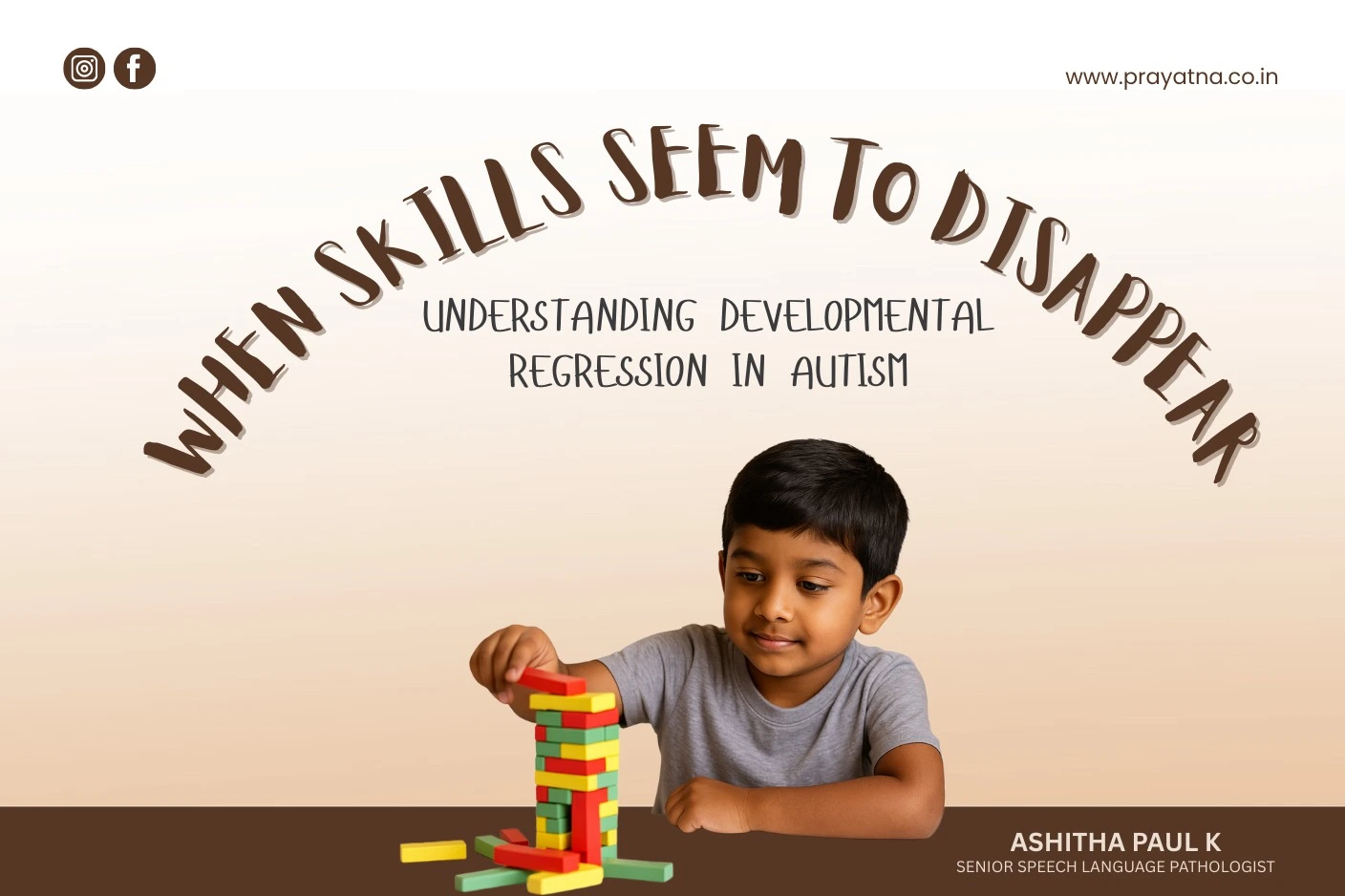When Skills Seem to Disappear: Understanding Developmental Regression in Autism
Why it happens, what it means, and how parents can respond with confidence
Developmental regression in autism is one of the most concerning early signs parents notice in their child’s early years. Autism is a neurodevelopmental condition that affects social communication, interaction, sensory processing, and behaviour patterns. While children with autism may show early delays, many parents report a sudden regression of skills—meaning the child loses abilities they had already developed. Regression refers to a return to a previous or less developed state, and in autism, this can appear as reduced speech, loss of words, decreased eye contact, reduced play skills, or changes in social interaction. This typically occurs before or around the age of two.
Research suggests that about one in three young children with autism experience developmental regression. For many, this involves a noticeable decrease in speech or babbling, while others may lose gestures, joint attention, pretend play, or daily routine skills. Studies also indicate that many children who later show regression had subtle developmental differences even before these skill losses became obvious.
The exact cause of developmental regression in autism remains unknown. Although factors like epilepsy, abnormal EEG activity, or early childhood vaccinations are often questioned by families, scientific research has consistently shown that these factors do not cause regression. Researchers continue to explore neurological and genetic influences, but at present, regression is understood as a natural variation within the autism spectrum rather than something triggered by external medical events.
What Is Developmental Regression in Autism?
Developmental regression in autism refers to a sudden loss of skills a child had already learned, such as speaking words, responding to their name, making eye contact, or engaging in play. This usually occurs before the age of two and can be one of the earliest signs parents notice. Although the exact cause is still unknown, research shows that regression is a natural pattern seen in some autistic children and is not caused by vaccinations or external medical factors.
What can parents do?
If you notice a regression in your child,
Observe your child– Make note of the changes you see, such as which skills were lost (speech, play, social interaction, daily routines). Check whether the child requires help with daily activities that they were able to do before independently.
Consult a professional – Reach out to your Speech-Language Pathologist/ Neurologist/ Paediatrician as soon as possible to share your observations.
Request an evaluation – Early assessments (developmental, speech, occupational therapy) can help in planning support and prevent further decline.
Start intervention early – Early therapies can make a big difference in regaining or strengthening skills.
Provide a supportive environment – Encourage your child through play, communication, and routines without pressuring them.
The most important thing is not to wait, as early action gives the child the best chance to progress.

